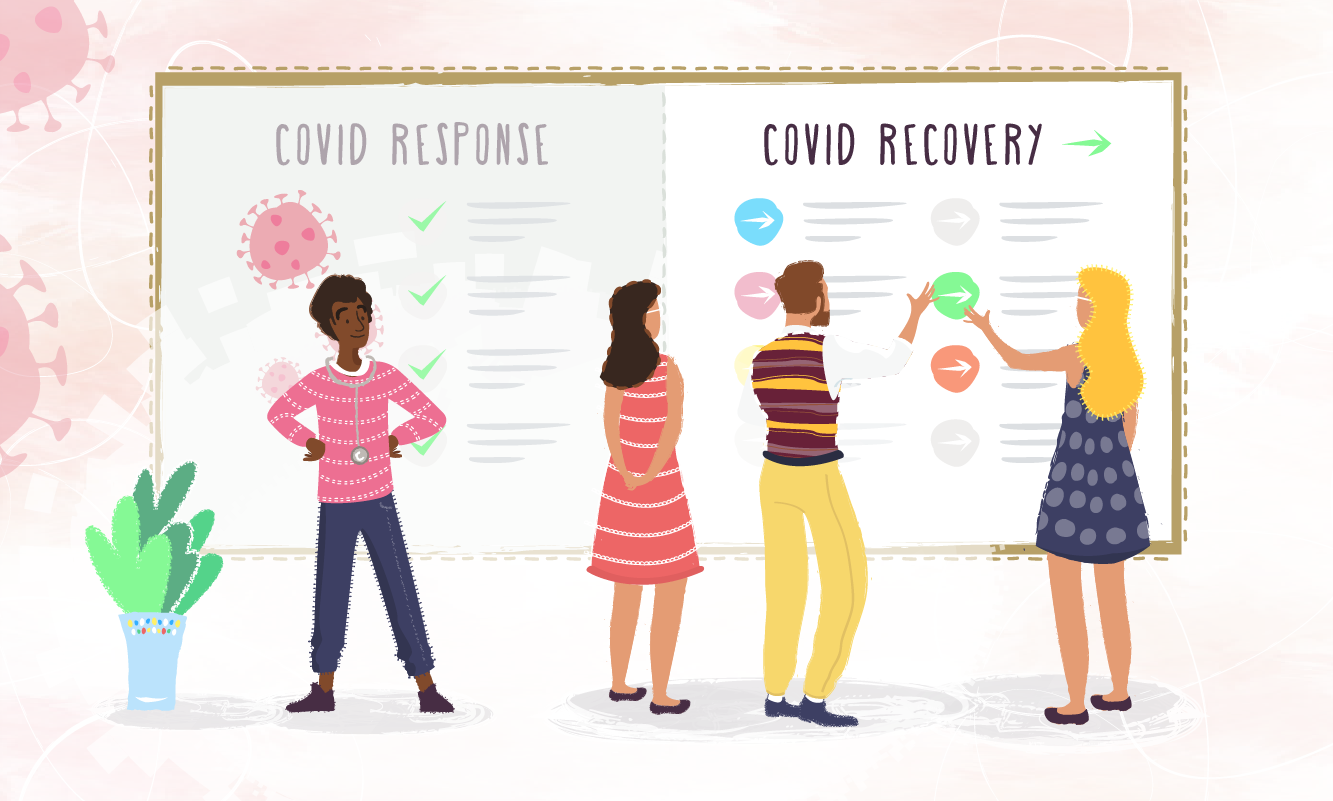Start improving with Life QI today
Full access to all Life QI features and a support team excited to help you. Quality improvement has never been easier.

Organisation already using Life QI?
Sign-up

In the early stages of the COVID-19 crisis the phrase we heard from all improvement teams was "covid response". This meant different things to different teams, but was characterised by a rapid and almost total focus on reacting to manage the rising pandemic.
Over the last few weeks this phrase seems to have subsided and given way to the next phrase, thankfully signalling the progression to a new phase of the pandemic - "covid recovery". Whilst no one is expecting the pandemic to be over soon or for everything to return to normal, this change in language is indicating a positive and welcome step forward.
Moving to recovery seems to be partly about getting projects and programmes back up and running to re-start data collection and testing, even if at a slower pace than before. Organisations are also starting to re-organise training cohorts, albeit in the short term this seems to be virtual training, but also looking ahead to when face-to-face training for staff may be possible again. Programmes and training are by no means back up and running yet, but the planning and organisation of these activities has certainly picked up again.
The Chinese word for “crisis” is composed of two characters — wei (meaning “danger”) and ji (meaning “opportunity”). In the danger phase of COVID-19 we have suffered from short term setbacks, and reacted to ensure service continuity and minimise negative impacts (the "covid response" phase). Now as we move towards the opportunity phase, we begin to rebalance resources and investment, and proactively position for long-term opportunities (the "covid recovery" phase).
The move to seek out opportunities is being signalled by another theme of the recovery phase. Improvement teams are working on capturing changes, assessing their impact, and identifying learning that can be taken forward. Given the period of rapid change, much of it happening somewhat outside of the normal routines, capturing the changes is no small task so it will be some time before all the useful lessons have been identified and plans made to enact the learning. But this is a crucial time for this activity and one that improvement teams seem to be jumping into with vigour.
As we look to the longer-term we should be asking ourselves - how will QI be different as a result of this period? We have been through an intense period during which rapid change and improvement have suddenly become common place, if a little less formal than it used to be. What opportunities could this give rise to? Could COVID-19 be a catalyst for healthcare improvement?
Look out for our thoughts on this and the future of QI soon ...
Full access to all Life QI features and a support team excited to help you. Quality improvement has never been easier.

Organisation already using Life QI?
Sign-up